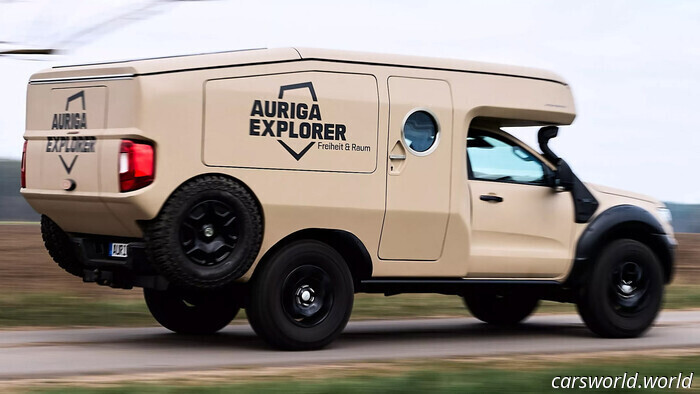
This Expandable Ford Mobile Home Puts the Cybertruck to Shame | Carscoops
Auriga Explorer's Voyager conversion turns a midsize truck into a compact and expandable overlanding camper.
German startup Auriga Explorer has designed the Voyager based on the Ford Ranger.
This camper includes slide-outs, a pop-up roof, a kitchen, a bathroom, and two double beds.
Production will occur in Germany, with dimensions suitable for export.
Although midsize pickups can’t carry as much weight as full-size trucks like the Ford F-150, they still provide a compelling base for camper conversions. These vehicles are practical, versatile, and gaining popularity among adventure enthusiasts, striking a good balance between daily usability and off-road capability, especially in regions with narrower roads compared to the U.S.
Now, Auriga Explorer, a new German firm, is developing a fascinating concept that converts the back of the truck into an expandable mobile home, and the images reveal that this build has several unique features.
Designed for Adventure
The Voyager project uses a single-cab variant of the previous-generation Ford Ranger. Auriga aims to ensure the final version is compatible not only with the latest Ranger but also with the Volkswagen Amarok, which shares its platform.
At first glance, the dual spare tires on the rear overhang give the Voyager an almost six-wheeled appearance. Coupled with its ample ground clearance, traction tires, and bolt-on wide fender extensions, this setup is geared towards overlanding enthusiasts.
The rear of the truck has been entirely re-engineered, featuring a lightweight glass fiber reinforced plastic (GRP) shell that incorporates factory taillights.
Above the cab and extending beyond the tailgate is the camper module, which includes slide-out sections on both sides and the back, along with a pneumatic pop-up roof to provide additional space and height.
Comfort in Nature
When closed, the Voyager measures 5.85 m (230.3 inches) in length, 2.10 m (82.7 inches) in width, and 2.25 m (88.6 inches) in height, maintaining the wheelbase of the original vehicle. Once expanded, it offers around 8 square meters (86.1 sq ft) of floor space and an interior height of up to 2.05 m (6.73 ft) with the roof raised.
The camper can accommodate up to four adults. The main bed is situated above the cab, while the secondary bed converts from the daytime seating area, which can seat six people across two benches and a pull-out table. The entrance cleverly serves as a compact bathroom, featuring a shower and a water circulation system designed to save resources.
In the front, there is a compact kitchen unit that includes a diesel-powered oven with a two-burner stove. Storage solutions are efficiently integrated: side slide-outs are designated for clothing and gear, while the rear slide-out offers a small garage for outdoor equipment. Solar panels, underfloor heating, and a skylight enhance comfort and independence for extended trips.
Frank Haltermann, Design Engineer and Managing Director of Auriga Explorer, stated that their conversion aims to “combine the best of two worlds – the freedom of a compact four-wheel-drive pickup truck and the comfort of a luxurious expedition vehicle.”
Auriga Explorer has indicated that the project has already moved through the conception, design, and testing phases. While pricing information is not yet available, production will be held in Germany, which is Europe’s largest market for campers and motorhomes. The Voyager is designed to fit inside a standard international shipping container, preparing it for global exports.

Other articles
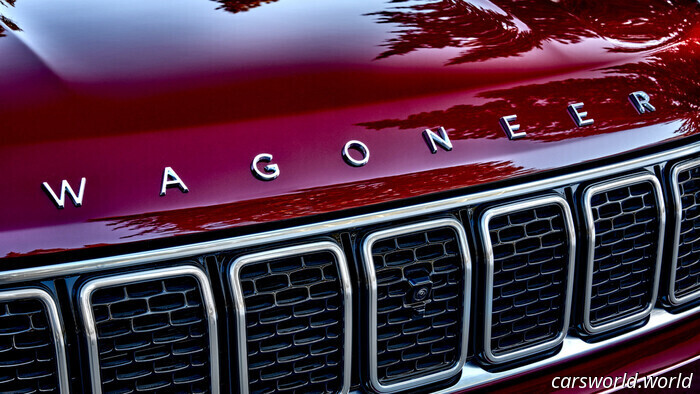 Jeep Discontinues Wagoneer as Grand Wagoneer Expands into a Larger Model | Carscoops
The existing Wagoneer is on the verge of being discontinued, right before the refreshed Grand Wagoneer is released.
Jeep Discontinues Wagoneer as Grand Wagoneer Expands into a Larger Model | Carscoops
The existing Wagoneer is on the verge of being discontinued, right before the refreshed Grand Wagoneer is released.
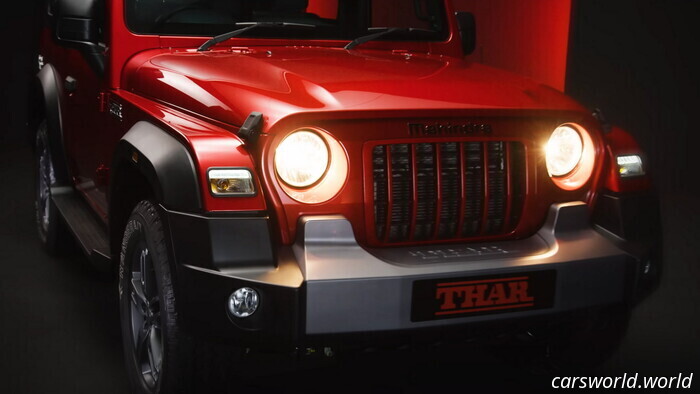 You Could Purchase Six Of These Jeep Imitations For The Cost Of One Wrangler | Carscoops
The refreshed Mahindra Thar features a bigger display and additional comforts in the interior.
You Could Purchase Six Of These Jeep Imitations For The Cost Of One Wrangler | Carscoops
The refreshed Mahindra Thar features a bigger display and additional comforts in the interior.
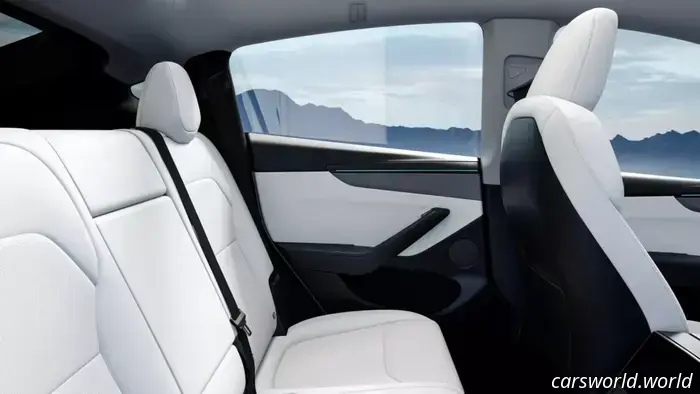 Model Y Owners Worry Their Children Might Get Stuck After an Accident | Carscoops
Owners are devising their own methods to operate the manual door releases in the second row.
Model Y Owners Worry Their Children Might Get Stuck After an Accident | Carscoops
Owners are devising their own methods to operate the manual door releases in the second row.
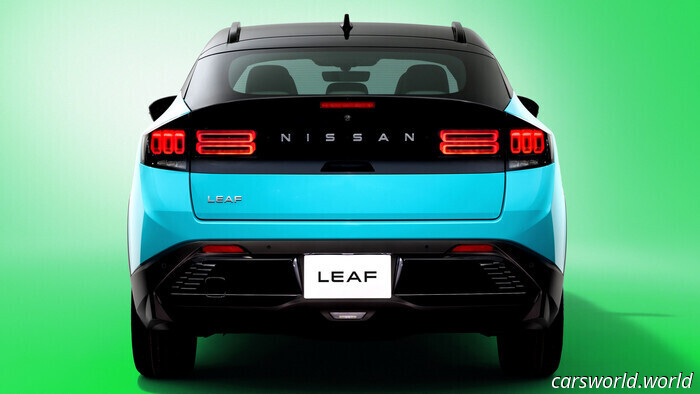 Nissan States That An AWD Leaf Is Possible, But Is Uncertain If It Should Be | Carscoops
The 2026 Leaf's redesigned crossover shape is currently not available with an AWD option.
Nissan States That An AWD Leaf Is Possible, But Is Uncertain If It Should Be | Carscoops
The 2026 Leaf's redesigned crossover shape is currently not available with an AWD option.
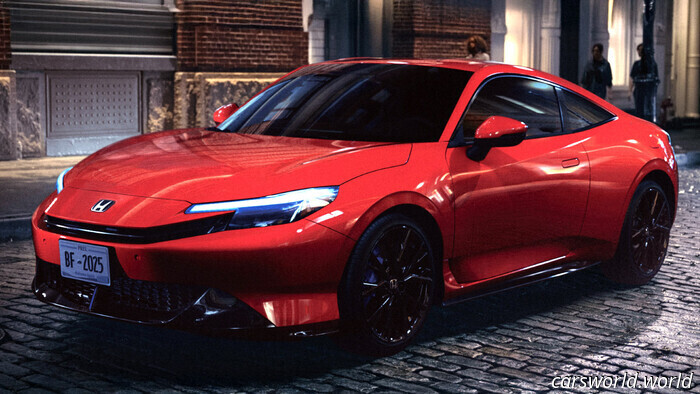 Honda Did Not Anticipate Baby Boomers to Flood Prelude Orders, Yet Here We Are | Carscoops
The new Honda coupe has resonated with nostalgia, as the majority of buyers in their 50s and 60s are contributing to its success beyond all anticipated levels.
Honda Did Not Anticipate Baby Boomers to Flood Prelude Orders, Yet Here We Are | Carscoops
The new Honda coupe has resonated with nostalgia, as the majority of buyers in their 50s and 60s are contributing to its success beyond all anticipated levels.
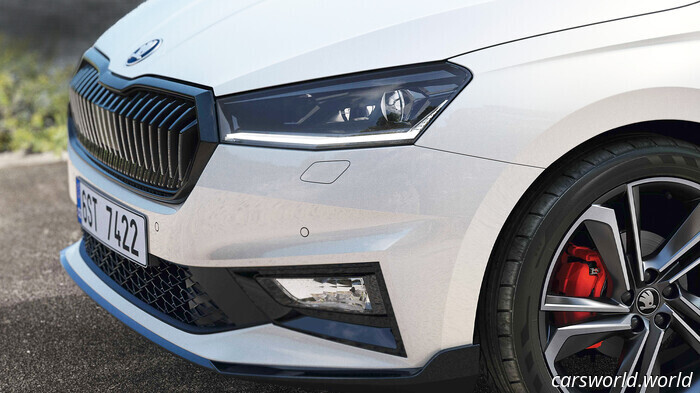 Skoda's Quickest Fabia Yet is Still Not Fast Enough | Carscoops
The Fabia 130 accelerates to 62 mph in 7.4 seconds and has a maximum speed of 142 mph, yet it is outperformed by the Mini Cooper S.
Skoda's Quickest Fabia Yet is Still Not Fast Enough | Carscoops
The Fabia 130 accelerates to 62 mph in 7.4 seconds and has a maximum speed of 142 mph, yet it is outperformed by the Mini Cooper S.
This Expandable Ford Mobile Home Puts the Cybertruck to Shame | Carscoops
Auriga Explorer's Voyager conversion turns the midsize truck into a compact, expandable camper designed for overlanding.
